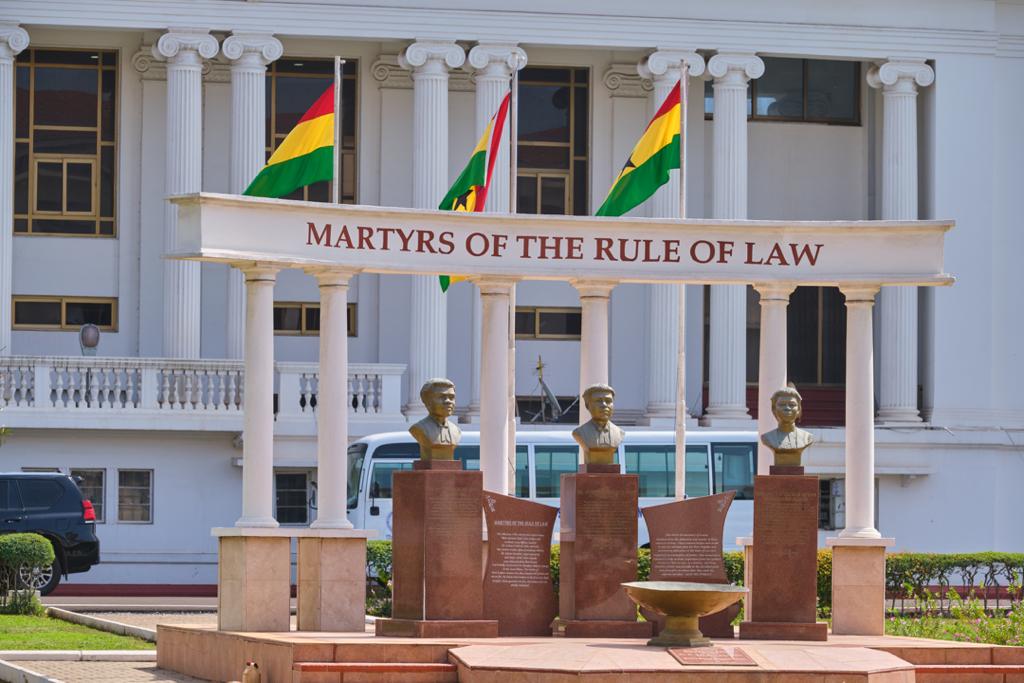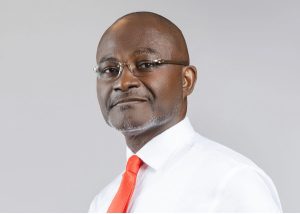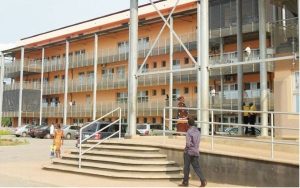The Supreme Court has dismissed a review application filed by the restrained National Democratic Congress (NDC) Member of Parliament (MP) for Assin North, James Gyakye Quayson, which sought to reverse the decision barring him from performing his duties as an MP until the determination of a suit challenging the constitutionality of his election.
In a unanimous ruling Tuesday, a nine-member panel of the apex court, presided over by Justice Isaac Jones Dotse, held that the review application did not meet the threshold for review, and was, accordingly dismissed.
The other members of the panel were Justices Agnes Dordzie, Nene Abayateye Ofoe Amegatcher, Nii Ashie Kotey, Prof. Henrietta Mensa-Bonsu, Gertrude Torkornoo, Issifu Omoro Tanko Amadu, Henrietta Mensa-Bonsu and Emmanuel Yonny Kulendi.
Review
In his review application, Mr Quayson was of the contention that the apex court committed “errors of laws” that had occasioned a grave miscarriage of justice against the people of Assin North, as well as himself.
He averred that the original suit that gave rise to the grant of injunction was a parliamentary election petition disguised as a constitutional interpretation.
It is, therefore, his case that the Supreme Court is not clothed with the jurisdiction to entertain a parliamentary election petition.
“That, among other errors, as I am advised and verily believe, this court assumed jurisdiction over a suit involving declaring the results of a parliamentary election invalid when this court has previously decided on many occasions it does not have jurisdiction over such a suit,” he averred.
Counsel for the restrained MP in his submission to firm up arguments in the motion today explained that the court did not have justification in the matter as this adding: “it is our view that your Lordship protects the judicial integrity of this court by reviewing this decision”.
Opposed
However, a deputy Attorney-General, Diana Asonaba Dapaah who opposed the application argued that the grounds of review had not been met.
“It is a different thing invoking and a different thing proving same.
“In our humble opinion, he has failed woefully to meet this,” she said.
Counsel for Michael Ankomah Nimfah, Mr Frank Davies who also opposed the application said the restrained MP had not made any case to necessitate a review urging the court to dismiss the application.
The nine-member panel, therefore, dismissed the application
Background
In a 5-2 majority decision on April 13 this year, the highest court of the land upheld an injunction application by a constituent of Assin North, Mr Michael Ankomah-Nimfah, who won a judgment at the Cape Coast High Court nullifying Mr Quayson’s election on the basis that the MP held Canadian citizenship at the time he filed to contest the seat.
The Justices on the majority side were Jones Dotse, Mariama Owusu, Gertrude Torkornoo, Prof. Henrietta Mensa-Bonsu and Emmanuel Yonny Kulendi.
Justices Agnes Dordzie and Nene Amegatcher dissented.
Reasons
In its ruling, the court was of the considered view that the High Court in Cape Coast had declared the election of Mr Quayson null and void and, therefore, allowing him to continue as an MP while the constitutional issue was yet to be determined “will be an indictment of the administration of justice”.
“There can be no justification for ignoring the submissions on the continued disregard of the orders of the High Court which have not been suspended or overturned,” it held.
Again, the court held that the whole country would suffer a greater hardship if Mr Quayson was allowed to continue to serve as MP and the court determined that his election violated the 1992 Constitution.
“This court will be failing in its exclusive mandate and duty to the Ghanaian people to uphold and defend the Constitution if it does not suspend, mitigate or abate an alleged constitutional illegality if the applicant were to succeed at the end of this suit,” it held.
The majority decision was authored by Justice Kulendi.
In the dissenting opinions, Justices Dordzie and Amegatcher were of the view that the Supreme Court was not the right forum for the applicant, and that all he needed to do was enforce the judgment of the High Court.










